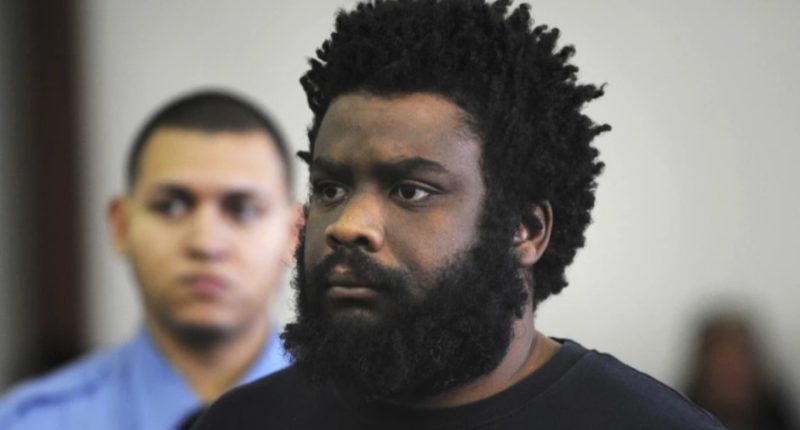A Connecticut man who has spent more than a decade receiving mental health treatment — after he was found not guilty by reason of insanity of killing man and eating part of his brain and an eyeball — has been granted conditional release by the state Psychiatric Security Review Board.
The release requires that Tyree Smith remain under structured supervision and continue to receive treatment, according to WVIT.
The board, which said it had thoroughly reviewed Smith’s progress over the years, said in its decision that Smith had demonstrated long term stability while engaging in all his treatment, including consistently following doctor’s instructions.
Smith, now in his late 40s, was arrested in Florida in January 2012 after showing up at a relative’s house in Connecticut a month earlier, covered in blood. He said he’d used a hatchet to kill a homeless man, eating some of his brain and an eye. Then he took a Greyhound bus to Florida
US Marshals tracked him down and brought him back to Connecticut.
There are several steps that must take place before Smith is released, beginning with temporary leave. He will still be confined to the hospital but will have privileges that allow him to receive treatment outside the hospital, including some overnights. If that is successful, the rest of the process is put into place.
A handful of Republican elected officials immediately condemned the board’s decision, dismissing the idea of rehabilitation and saying it was “outrageous and mind-boggling” and that Smith should never see outside the hospital.
“This terrible decision puts public safety in jeopardy and is yet another terrible message to send to CT violent crime victims and their families. This person should never be out,” state senators Heather Somers, Paul Cicarella, Henri Martin and Stephen Harding said in a statement. “We are dumbfounded at this injustice. In what universe is this OK?”
The state board did not respond to the senators’ outrage, allowing their initial statement to stand.
“Rehabilitation, not punishment, is the goal for all individuals found Not Guilty by Reason of Insanity (NGRI),” the board said, noting that Smith will be closely supervised and has for more than a decade steadily improved.








